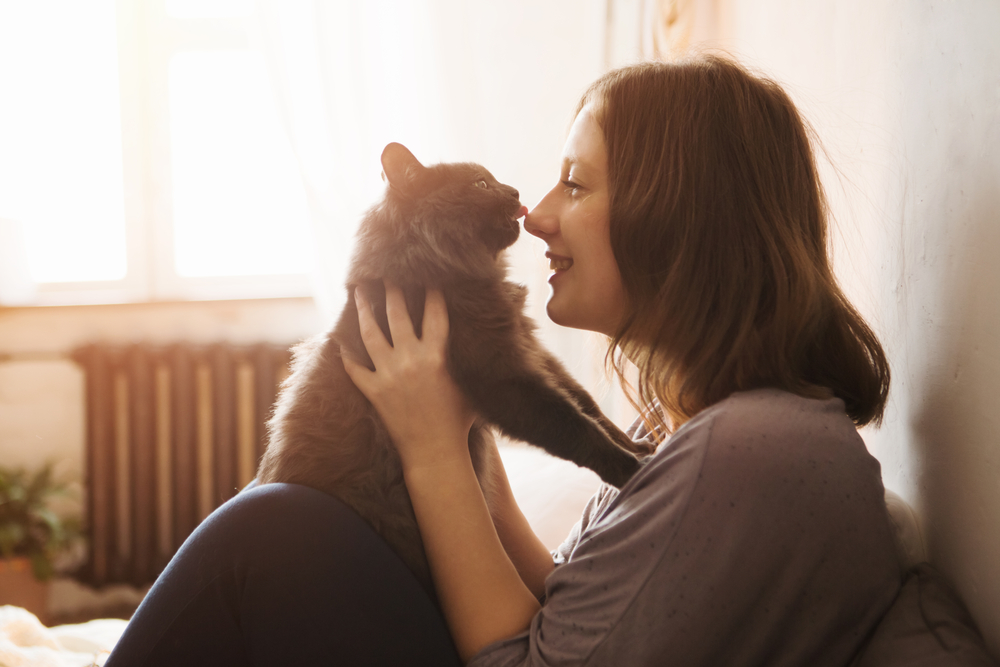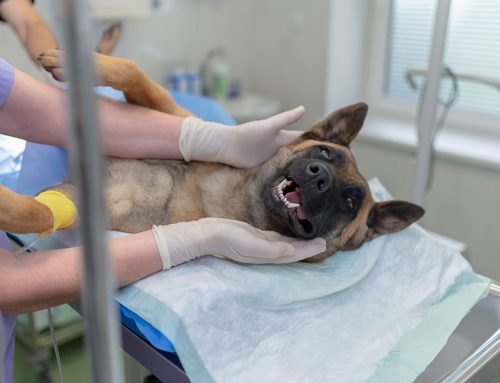To earn the Cat Friendly Practice® designation, a veterinary practice must meet specific criteria to elevate cats’ care by reducing stress and making visits easier for cats and their caregivers. Our Burlington Veterinary Center team is proud to be a certified Cat Friendly Practice® because we are committed to providing our feline patients and their owners with a low-stress and high-quality veterinary experience every time. Learn four differences a Cat Friendly Practice® can make to your feline friend’s veterinary care.
#1: A Cat friendly environment reduces stress
Cats face unique challenges when at a veterinary clinic. They are highly sensitive to new sights, sounds, and smells, and most cats prefer quiet and solitude. Cats can experience extreme stress when they are in an unfamiliar environment with dogs nearby, so we provide our feline patients with their own waiting room, designed with their best interests in mind—free of sometimes-rambunctious dogs. A calm, quiet waiting room is an essential component of a Cat Friendly Practice®, reducing feline stress, and setting a positive tone for your cat’s examination.
#2: Cats deserve a feline-focused care approach
We believe cats deserve a certain level of accommodation and thoughtfulness when receiving veterinary care. Our Cat Friendly Practice® takes extra steps to provide the best care and experience for you and your cat, including:
- Feline friendly handling guidelines — Each member of our veterinary staff follows feline friendly guidelines to ensure we handle your cat gently and respectfully. To help your cat feel safe while being examined, staff members may use towels or blankets when needed, especially if your feline friend wants to burrow in and hide.
- Cat friendly exams — Physical exams are performed in a manner and location where they are least stressful to your cat, such as on the floor, bench, table, or veterinarian’s lap, under a blanket, or while your feline friend remains in their carrier.
- Awareness of feline stress signs — Staff members are trained to recognize cats’ fear and anxiety by acting appropriately, which may sometimes include suggesting a break during the examination to allow the patient to calm down.
#3: Cat owners receive education on important feline issues
Cat Friendly Practices® have feline-specific educational materials available to you upon request. In addition, keep in mind that our team has the expertise to educate you about important feline issues, such as:
- Behavior — Understanding feline behavior is key to creating a strong bond with your feline friend. Learn to identify subtle changes that may be a sign that your cat has an underlying health condition.
- Nutrition — You must make many decisions about feeding your cat, including their food, the amount, and the feeding method. Cats require a well-balanced diet to maintain their overall health and wellbeing, and your veterinarian can help you determine the best feeding regimen for your feline friend’s specific needs.
- Indoor enrichment — Indoor cats require mental enrichment to ensure they live their best life. Get advice on ways to create positive, stimulating experiences for your cat while they remain safely inside your home.
- Parasite prevention — If your cat contracts a parasitic disease, they can become seriously ill, and sometimes die. Prevention is the best medicine—oral chews and topical applications can protect your feline friend from a range of parasites, both internal and external. To ensure your cat’s maximum parasite protection, administer preventives year-round.
#4: Preventive care helps extend your cat’s life

Preventive care is the best way to keep your cat healthy throughout their life, and all cats should have wellness examinations annually at a minimum. Senior cats and cats who have chronic health conditions may require more frequent veterinary visits. Keep in mind that your cat’s veterinary care needs change as they age. At each life stage, your veterinarian provides your cat with individualized care and services that address your feline friend’s specific health needs. In addition, your veterinarian is always prepared to respond to your questions and concerns. At your cat’s annual Cat Friendly Practice® wellness visit, our veterinarian performs a head-to-tail examination and health assessment, which includes:
- Examination of your cat’s heart, lungs, and abdomen for abnormalities or pain
- Joint palpation to identify arthritis or other pain
- Pain, nutrition, and behavior assessments
- Vaccination recommendations based on American Association of Feline Practitioners (AAFP) Feline Vaccination guidelines
- Care recommendations based on your cat’s life stage, lifestyle, and health history
Contact our Burlington Veterinary Center team to schedule your cat’s next appointment, and experience the difference a Cat Friendly Practice®can make to your feline friend’s veterinary care.







Leave A Comment